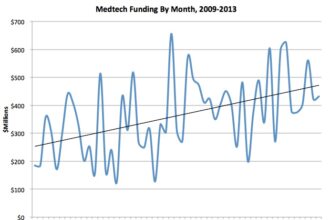Mental health services, a critical component of community health, have significantly benefited from technological innovations. The importance of mental health has become increasingly apparent in recent years – more than 50 million Americans reported experiencing mental health issues in 2019 to 2020.
As a healthcare provider, mental health is an area that is vital to provide services for. Just as physical illness and injury doesn’t discriminate, mental health concerns can impact anyone and is finally becoming a lot more widely understood. Within any community a healthcare provider plays a critical role, and ensuring your mental health services are up to standard can be a major asset for your business and your community.
Technology is an incredible benefit to healthcare, in all areas. Where tech has allowed innovations in physical medical care, it has also increased accessibility and quality of mental health care throughout America.
Understanding Teletherapy Platforms
Teletherapy platforms have emerged as a cornerstone in providing mental health services, especially in areas with limited access to mental health professionals. The rise in uptake of teletherapy can be partly credited to the COVID-19 pandemic, in which telemedicine encounters increased by 766%.
These platforms offer secure, HIPAA-compliant video conferencing tools, allowing therapists and patients to connect remotely. This technology not only expands the reach of mental health professionals but also provides a convenient, stigma-free way for individuals to seek help.
Leveraging Mobile Health Applications
Mobile health applications play a pivotal role in modern mental health care. These apps offer various functionalities, from mood tracking and meditation to therapy assistance and crisis intervention. Development of mental health apps has seen significant investment in recent years, with projections showing that the mental health tech space will be worth a staggering $26 billion by 2027.
Their accessibility makes them a valuable tool for individuals seeking to manage their mental health. By integrating these applications into mental health services your business provides, communities can enjoy continuous support and self-help tools, empowering individuals to take an active role in their mental health journey.
Utilizing Big Data and Analytics
Big data and analytics are reshaping the landscape of mental health care by providing insights into population health trends and treatment outcomes. Through the analysis of large data sets, healthcare providers can identify patterns, predict risks, and customize treatment plans. This technology enables mental health professionals to make informed decisions, improve service delivery, and track the effectiveness of interventions, ultimately leading to better patient outcomes.
Marketing for Healthcare Businesses
Effective marketing for your healthcare business is essential in raising awareness and encouraging utilization of available technologies – both in physical and mental healthcare. A well-designed marketing strategy can educate the community about the benefits of these technologies, dispel myths, and reduce stigma.
Stigma around mental health remains one of the biggest hurdles patients face when they’re considering seeking help. Jaimie Gradus, associate professor at the School of Public Health, highlights this necessity, saying that “breaking down stigma and viewing mental health as public health is critical for reframing our approach and creating a system that prioritizes prevention.”
You can use your marketing strategy to show patients that there is no shame in seeking help, through tools like storytelling and using your branding to show that you are a business that cares.
Embracing AI and Machine Learning
Artificial Intelligence (AI) and machine learning are transforming mental health services by offering personalized care and predictive analysis. With only one mental health professional for every 350 patients in need of care, AI can help to plug this gap. While it could never replace human interaction, AI can have a range of uses in mental health services.
AI-driven chatbots, for instance, can provide initial counseling, triage, and referral services. Machine learning algorithms can analyze patient data to predict risks and suggest interventions. This technology enhances the capability of mental health professionals by providing additional support tools, thus improving the overall efficiency and effectiveness of a business’s mental health services.
Integrating Wearable Technology
There are a growing number of ways to treat mental illness without medication. One way can include using wearable technology to help mitigate these issues.
Wearable technology, such as smartwatches and fitness trackers, has become increasingly relevant in monitoring mental health. These technologies are increasing in usage every day, with around 29.9% of Americans aged 16 to 64 using a smart watch or wristband.
These devices can track physiological data like heart rate and sleep patterns, which are indicators of mental well-being. By incorporating wearable technology into mental health care, professionals can gain real-time insights into their patients’ mental state, enabling more timely and tailored interventions. This proactive approach can significantly improve the management of mental health conditions.
Ensuring Security and Privacy
As technology becomes more integrated into mental health services, ensuring the security and privacy of patient data is paramount. Compliance with regulations such as HIPAA is essential in maintaining trust and confidentiality.
The chair of the APA Committee on Telepsychiatry, Shabana Khan, M.D., has spoken extensively on the importance of adhering to HIPAA while using technology to provide mental health care. Measures should include “Environmental privacy best practices include clinicians connecting from a private space and letting patients know if there are others in the room with them.”
Healthcare providers must invest in secure, encrypted platforms and educate staff and patients on best practices for data protection. By prioritizing security and privacy, communities can confidently embrace these technologies, knowing that patient information is safeguarded.
Summary: How Your Business Can Give Back To The Community
The integration of technology into mental health services offers immense potential for improving your care delivery and accessibility. From teletherapy platforms and mobile health applications to AI and big data, these tools can significantly enhance the way mental health support is provided in local communities.
Understanding and carefully implementing these technologies is fundamental to succeeding in providing quality mental health services. Using tech, healthcare providers can offer more efficient, personalized, and accessible mental health services, ultimately fostering a healthier and more resilient community.









